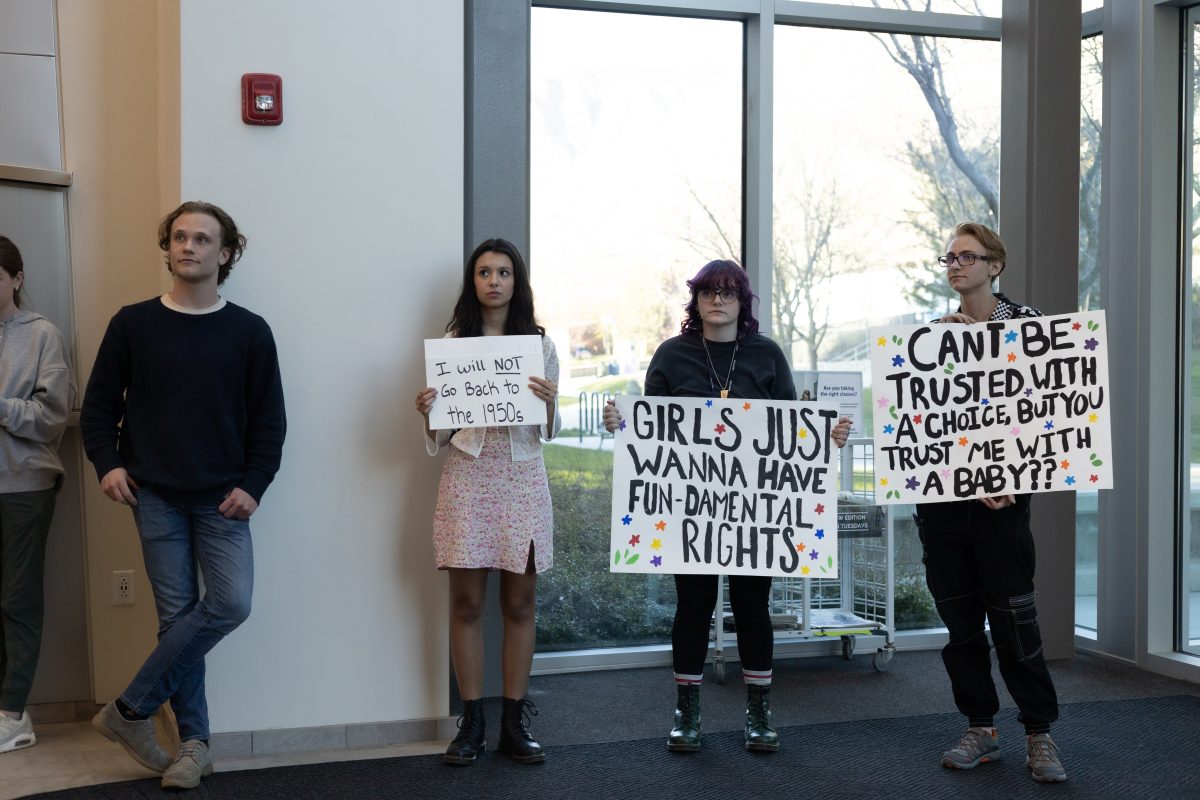
Ariana Berkemeier | The Signpost
History can be forgotten from time to time. Often the fact that most of the western territory was originally Mexico’s land is passed over, as well as the Mexican Repatriation during the 1920s, which was a major consequence of the deal made between Mexico and the United States.
Ana Castillo, poet and novelist of Mexican-American origin, addressed Weber State University students on Thursday at the Wildcat Theater.
“We’ve been working on this since 2o13, it’s been a great opportunity,” said Electra Fielding, Assistant Professor of Spanish.
Castillo discussed issues from early immigration in the United States, which included the Mexican government selling part of its territory to the U.S. and the deportation of thousands of Mexican and Mexican-Americans during the 1900s, also called the Mexican Repatriation. According to Castillo, there is no record of this event.
Researchers have estimated that “between November, 1929 and December, 1931 200,000 to one million Mexicans were forced to leave the U.S. over the next ten years, although an estimate of 400,000 to one million Mexicans and Mexican-Americans were deported to Mexico,” said Castillo.
After sharing some statistics of the Mexican Repatriation, Castillo shared the story of her family. Castillo’s mother, a U.S. citizen, was a victim of the repatriation and was forced to moved to Mexico with her grandparents.
When Castillo’s mother grew-up, her grandparents encouraged her to move back to the U.S.
“My mother lived and worked in Chicago for the rest of her life, but the funny thing is, I never heard her speak English,”said Castillo.
Castillo continued by giving students the current statistics on deportations in recent years, as well as introduced them to the Dream Act, also known as deferred action, which gives immigrants who came to the united states as children the opportunity to pursue an education.
“You may ask yourselves or me, perhaps later, what is the solution, how should the president proceed? They don’t know in Washington [D.C.], and I don’t have a magic solution either,” said Castillo.
After Castillo’s presentation, attendees participated in a Q&A session.
When asked about the challenges of Mexican-Americans in recent years, Castillo said there isn’t one particular challenge that this group has in common.
“U.S.A. Latinos and Mexican-Americans don’t shared race, we don’t share religion…so we don’t share the same challenges,”said Castillo.
Marcus Jensen, a communications student major, who is taking the Hispanic Culture in the U.S. class, said that he has had the opportunity to study some of Castillo’s books.
“The first thing that caught my attention was how she talked about how Latinos aren’t united under one race and one religion,” said Jensen. “I think it is really interesting, the fact that she said that, having to deal with Latinos in my own life, I kind of have seen it. Even people from the same country are not always united under one purpose.”
Cecilia Moya, a WSU student, said that she was really impressed with the deportation statistics during the Great Depression that Castillo shared.
“I’ve been happy to be here, and I do hope that Weber State continues to promote its diversity in all levels, curriculum, faculty and students,” said Castillo.




















